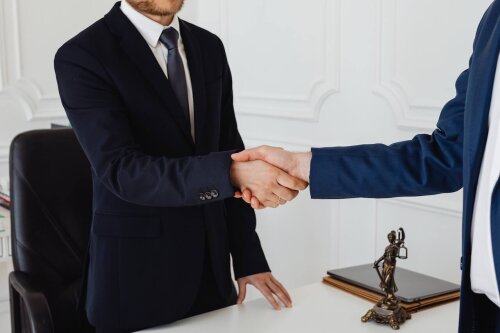Best Professional Malpractice Lawyers in Sao Paulo
Share your needs with us, get contacted by law firms.
Free. Takes 2 min.
List of the best lawyers in Sao Paulo, Brazil
About Professional Malpractice Law in Sao Paulo, Brazil
Professional malpractice, also known as “erro profissional” or “responsabilidade civil profissional”, refers to the failure of professionals to adhere to the standards of their profession, causing harm or losses to clients or third parties. In Sao Paulo, Brazil, professional malpractice can pertain to various fields, including medicine, law, engineering, accounting, architecture, and more. Victims of malpractice may be entitled to seek compensation through legal action if they can prove negligence or breach of duty by a professional.
Why You May Need a Lawyer
There are several situations where hiring a lawyer experienced in professional malpractice in Sao Paulo can be essential:
- You suffered harm due to decisions or actions of a medical, legal, or other specialist.
- You believe a professional has failed to perform services to the required standards and caused you financial loss.
- A professional’s error resulted in bodily injury or emotional distress.
- You were given inadequate or misleading advice that led to damages.
- You have been accused of malpractice and need defense against such claims.
- Negotiating a settlement with a professional or their insurer.
- Navigating complex regulations and procedures related to professional liability claims.
An attorney can help assess the viability of your claim, gather necessary evidence, negotiate with the opposing parties, and represent you in court if necessary.
Local Laws Overview
Professional malpractice in Sao Paulo is primarily governed by the Brazilian Civil Code and specific regulations that apply to each profession. The key elements often required to establish professional malpractice are:
- Duty of Care: The professional owed a duty to the client or patient.
- Breach of Duty: The professional failed to conform to the standard or technical ethical requirements of their field.
- Damages: The client or third party suffered actual harm, loss, or damage.
- Link of Causation: There is a proven causal link between the breach and the damages.
Certain professions are also regulated by their own codes of ethics and specific laws established by federal or state councils (such as the Conselho Regional de Medicina de São Paulo for doctors or OAB-SP for lawyers). The process often starts with an administrative complaint to these councils, followed by civil lawsuits in the courts if necessary.
It is also important to note the statute of limitations, which can vary by type of case but is generally three years for civil claims involving damages under Brazilian law. Some public servants and government-employed professionals follow slightly different procedures.
Frequently Asked Questions
What qualifies as professional malpractice in Sao Paulo?
It involves a professional failing to act according to accepted standards, resulting in damage to a client. This can include errors, omissions, negligence, or unethical conduct across fields like medicine, law, engineering, and accounting.
Which types of professionals can be held liable for malpractice?
Doctors, dentists, lawyers, engineers, architects, accountants, and other specialized service providers can be held liable if they breach their professional obligations and cause harm.
How do I prove professional malpractice occurred?
You must demonstrate that the professional had a duty of care, breached that duty, and this directly caused you measurable harm or losses. Evidence such as reports, documents, expert opinions, and witness testimony are usually required.
What damages can I claim in a professional malpractice case?
Victims can seek compensation for financial losses, bodily or moral damages (such as pain and suffering), costs for corrective treatment or work, and sometimes punitive damages depending on the case.
How long do I have to file a malpractice claim in Sao Paulo?
The typical statute of limitations is three years from the date you became aware of the damage and its cause, but this period can vary depending on the circumstances and the professional involved.
Should I complain to a professional body or go straight to court?
It is often advisable to make an administrative complaint to the relevant professional council first, especially in cases involving doctors or lawyers, as they have disciplinary processes. Legal action in court may follow or occur simultaneously, depending on your objectives.
Can I settle a malpractice dispute without going to court?
Yes, many cases are resolved through negotiation and settlement between the victim, the professional, and their insurer. Mediation is also an option.
Are professionals always responsible for errors made by their employees?
Professionals and companies can be liable for the actions of their employees or team members if those acts occurred within the scope of their work and authority.
What defenses do professionals commonly use in malpractice cases?
Defenses can include lack of causation, compliance with acceptable standards, absence of negligence, client responsibility, or challenging the extent of damages claimed.
Do I need a specialist lawyer for a malpractice case?
It is strongly recommended to seek a lawyer who specializes in professional malpractice, as these cases require knowledge of both legal and technical standards particular to each profession.
Additional Resources
If you are dealing with a potential professional malpractice situation in Sao Paulo, consider consulting these organizations or bodies:
- Ordem dos Advogados do Brasil - Seção São Paulo (OAB-SP) - for matters involving lawyers
- Conselho Regional de Medicina do Estado de São Paulo (CREMESP) - for medical malpractice matters
- Conselho Regional de Engenharia e Agronomia do Estado de São Paulo (CREA-SP) - for engineering and technical professionals
- Defensoria Pública do Estado de São Paulo - for free legal assistance in certain cases
- Tribunal de Justiça do Estado de São Paulo - state judiciary where civil cases are filed
Next Steps
If you suspect that you have been harmed due to professional malpractice in Sao Paulo, consider the following steps:
- Gather all documents, contracts, reports, correspondence, and evidence related to your case.
- Consult with a lawyer who specializes in professional malpractice to assess the strength of your claim.
- If advised, file an administrative complaint with the relevant professional council.
- Consider whether negotiation, mediation, or formal legal proceedings are the best approach for your situation.
- Take timely action to avoid missing any statutory deadlines for filing your claim.
- Maintain records of all communications and developments in your case.
Obtaining professional legal advice early can help protect your rights and improve your chances of a successful outcome, whether through settlement or in court.
Lawzana helps you find the best lawyers and law firms in Sao Paulo through a curated and pre-screened list of qualified legal professionals. Our platform offers rankings and detailed profiles of attorneys and law firms, allowing you to compare based on practice areas, including Professional Malpractice, experience, and client feedback.
Each profile includes a description of the firm's areas of practice, client reviews, team members and partners, year of establishment, spoken languages, office locations, contact information, social media presence, and any published articles or resources. Most firms on our platform speak English and are experienced in both local and international legal matters.
Get a quote from top-rated law firms in Sao Paulo, Brazil — quickly, securely, and without unnecessary hassle.
Disclaimer:
The information provided on this page is for general informational purposes only and does not constitute legal advice. While we strive to ensure the accuracy and relevance of the content, legal information may change over time, and interpretations of the law can vary. You should always consult with a qualified legal professional for advice specific to your situation.
We disclaim all liability for actions taken or not taken based on the content of this page. If you believe any information is incorrect or outdated, please contact us, and we will review and update it where appropriate.









